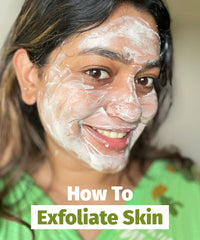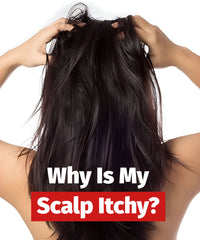A shampoo’s fundamental duty is to remove dirt, oils and products from your scalp, exposing more space between each hair strand. After this goal is achieved, specific shampoos like hair thickening shampoos and volumizing shampoos can transcend from its basic purpose to a more specialised one.
On that account, volumizing shampoos do work. To know how, Let us first understand the basic difference between a thickening shampoo and a volumizing one. These two terms are often interchanged even though they allude to achieve two different yet ostensibly kindred goals.
When a shampoo has performed its rudimentary duty of cleaning up, applying a hair thickening shampoo will plump up each strand of hair in order for it to take up more space and give it a fuller appearance. These shampoos are infused with protein and collagen, enhancing what is already present to form a net around every hair strand making it stronger and full.
On the other hand, volumizing, by definition, measures three dimensional spaces to add fullness. It works on hair texture and helps in improving the overall hair volume by penetrating and expanding hair fibers. They make hair appear fuller, bouncier and more full of body while dealing with texture of hair in whole rather than the thickness of individual strands.
So, given the difference, what does it take for a volumizing shampoo to work?
It depends on the influencing variables like formulation concoction, coordinating conditioner, hair texture, hair conditions and/or other health issues. Roughly 50 percent of men and women have naturally fine-thin hair hence application of a volumizing shampoo may not give the intended results. Volumizing hair shampoos tend to only be effective if and when the hair has become thin due to damage by various external or internal factors. Fine hair, ironic to the name, refers to strands of hair with thinner physical diameters due to the absence of an inner structure called medulla and the lack of protein that strengthens hair. Some volumizing shampoos are effective against fine hair and help manage these structural issues by strengthening cortex and reducing oil buildup and dryness. These shampoos are designed to achieve different goals and may be augmented by innovative ingredients and supplements like pea protein that helps achieve those goals.
On the downside, some of these chemical cocktails in volumizing products leave residues that can weigh your hair down and deteriorate your scalp conditions overtime.
Now as you are aware of how these shampoos work, let us bring another important point to the spotlight- how often should one wash their hair?
Of course, this is a question we have all tried to answer ever since we started washing our hair and the truth is, it is nothing really specific but just vague distortions of answers exclusive of factors like hormones, nature of your profession, etc.
In general though, GQ India gives us an ambiguous guideline depending on variables like thickness of your hair, oil content and dryness of your scalp. For straight hair, you can shampoo everyday if preferred and condition according to how heavy or light you want your hair to look. The more days you condition, the more weighed-down your hair looks. People with wavy hair are suggested to shampoo at least three or four times a week to get rid of dust and dirt that settles in your scalp and condition in relation with how dry your hair feels or looks. For people with curly hair, they advise to not wash it all that frequently and max it up to just twice a week using a shampoo with moisturizing property that will help prevent rinsing away too much oil out of the hair that could leave them with an alfo (unless they want one).
Finding a shampoo that works best for your hair is an exhaustive process and often feels futile, especially if the shampoo used does not complement your hair’s transformation, texture and/or length. To make these decisions easy for you, Vivvah recommends using the following products to keep your hair healthy, shiny and bouncy.
1) Vilvah Goat Milk Shampoo:
This Ecocert certified botted concoction of goat milk and pea protein (among other ingredients) offers rich creamy lather which effectively cleanses, hydrates, conditions and volumizes the hair. This clinically tested shampoo is completely plant-derived and is suitable for all hair types.
2) Vilvah Hair Growth Oil:
This dynamic duo of black seeds and pumpkin seed oil helps repair and rejuvenate hair and scalp that triggers hair growth and prevents hair thinning. This elixir is blended in castor, kalonji and grape seed oil which has shown to successfully reverse balding.
3) Vilvah Anti-dandruff Herbal Shampoo:
A blend of four powerful traditional herbs; neem, tea tree, rosemary and black pepper, effectively cleanses your skin of stubborn dandruff causing microbes. Works best on flaky scalp and chemically treated hair.
4) Vilvah Anti-dandruff Hair Oil:
Made of neem, tea tree and camphor, this commingle of essential oils gets rid of itchy scalps and white flakes. The antibacterial and antiseptic property present in these oils helps fight off fungal growth that causes extreme skin cell growth due to the uncontrollable amount of sebum in your hair.
5) Vilvah Hair Conditioner:
This formula of Tucuma Butter and broccoli oil deeply conditions and guards hair against breakage leaving hair soft, silky and shiny. These light ingredients are gentle on hair and do not weigh them down a bit.
Apart from the products mentioned above, you can use a henna powder mask every fortnight as a proven natural hair volumiser. Cut down on using chemical volumizing products, as their temporary effects are not worth the permanent harm they can cause to your hair. But with Vilvah’s natural, sustainable and safe hair products, you can plan your own volumizing regime without having to worry about any permanent damage to your hair or scalp.


 Track Order
Track Order
















Leave a comment
All comments are moderated before being published.
This site is protected by hCaptcha and the hCaptcha Privacy Policy and Terms of Service apply.